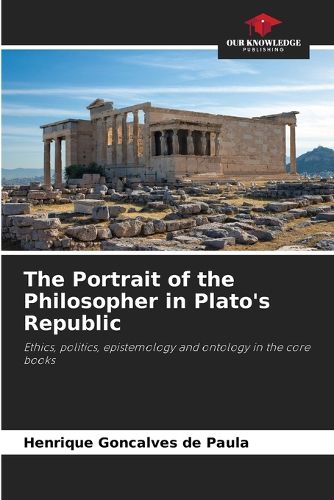Readings Newsletter
Become a Readings Member to make your shopping experience even easier.
Sign in or sign up for free!
You’re not far away from qualifying for FREE standard shipping within Australia
You’ve qualified for FREE standard shipping within Australia
The cart is loading…






This text is the result of a master's research project carried out at the University of Sao Paulo between 2007 and 2010, supervised by Professor Roberto Bolzani Filho. In this text we intend to analyze the argument developed by Plato in his most famous work, The Republic, which establishes the philosopher as the political sovereign in the city and the genuinely just individual. To do this, we try to analyze the discourse presented in the central books of the work (books IV, V, VI and VII) in which Plato develops a conception of the nature of philosophy as an imitation of the Forms and justifies the superiority of the philosopher based on his exclusive understanding of the Good. We intend to refute the widespread assessment of Plato's argument that accuses him of constructing two irreconcilable conceptions of the philosopher: the practical philosopher and the contemplative philosopher. We will thus go through some of the main ethical, political, epistemological and ontological theses of the work to show that philosophy in The Republic is understood as the taking of a complex existential position that shapes all aspects of an individual's life.
$9.00 standard shipping within Australia
FREE standard shipping within Australia for orders over $100.00
Express & International shipping calculated at checkout
Stock availability can be subject to change without notice. We recommend calling the shop or contacting our online team to check availability of low stock items. Please see our Shopping Online page for more details.
This text is the result of a master's research project carried out at the University of Sao Paulo between 2007 and 2010, supervised by Professor Roberto Bolzani Filho. In this text we intend to analyze the argument developed by Plato in his most famous work, The Republic, which establishes the philosopher as the political sovereign in the city and the genuinely just individual. To do this, we try to analyze the discourse presented in the central books of the work (books IV, V, VI and VII) in which Plato develops a conception of the nature of philosophy as an imitation of the Forms and justifies the superiority of the philosopher based on his exclusive understanding of the Good. We intend to refute the widespread assessment of Plato's argument that accuses him of constructing two irreconcilable conceptions of the philosopher: the practical philosopher and the contemplative philosopher. We will thus go through some of the main ethical, political, epistemological and ontological theses of the work to show that philosophy in The Republic is understood as the taking of a complex existential position that shapes all aspects of an individual's life.